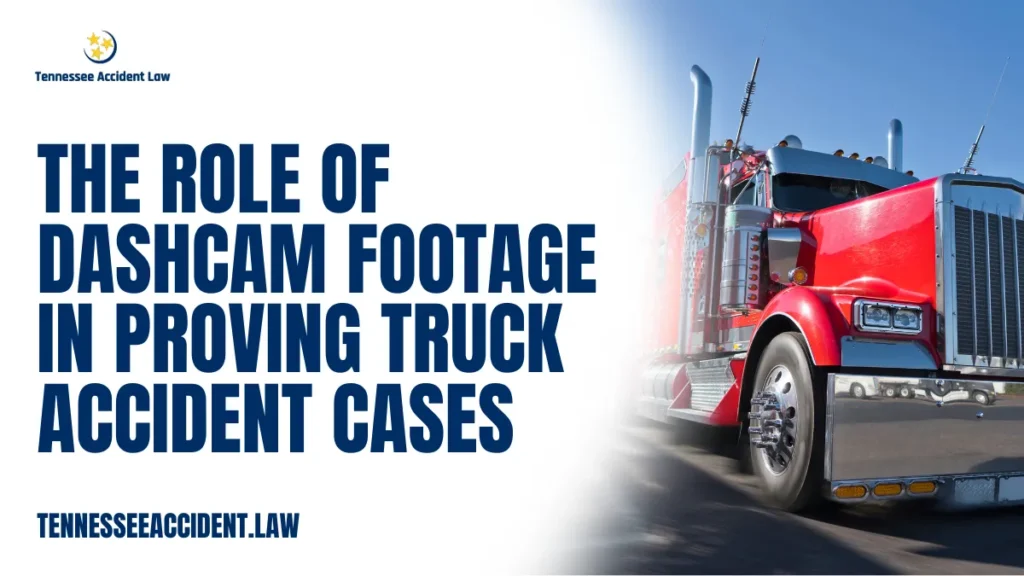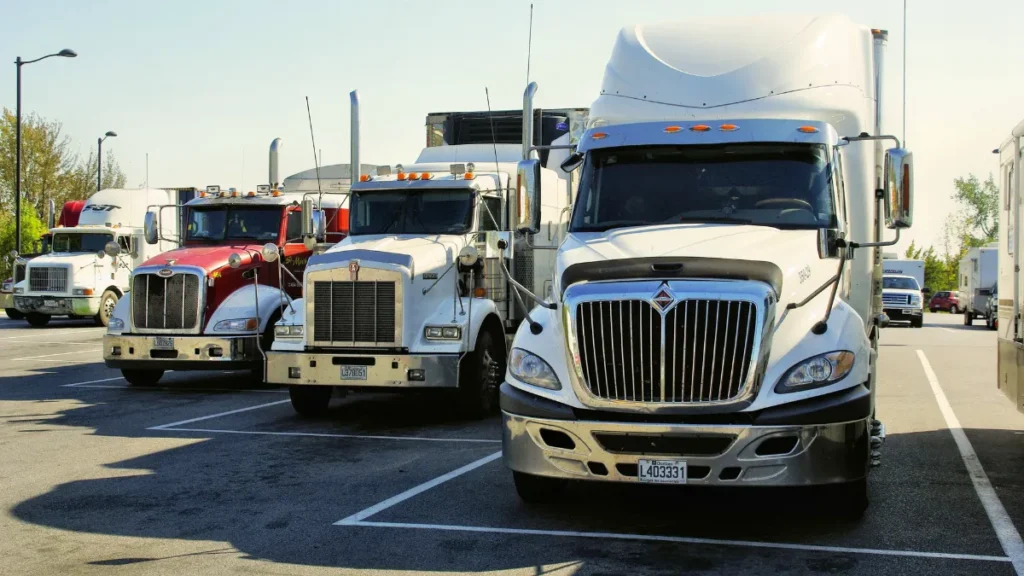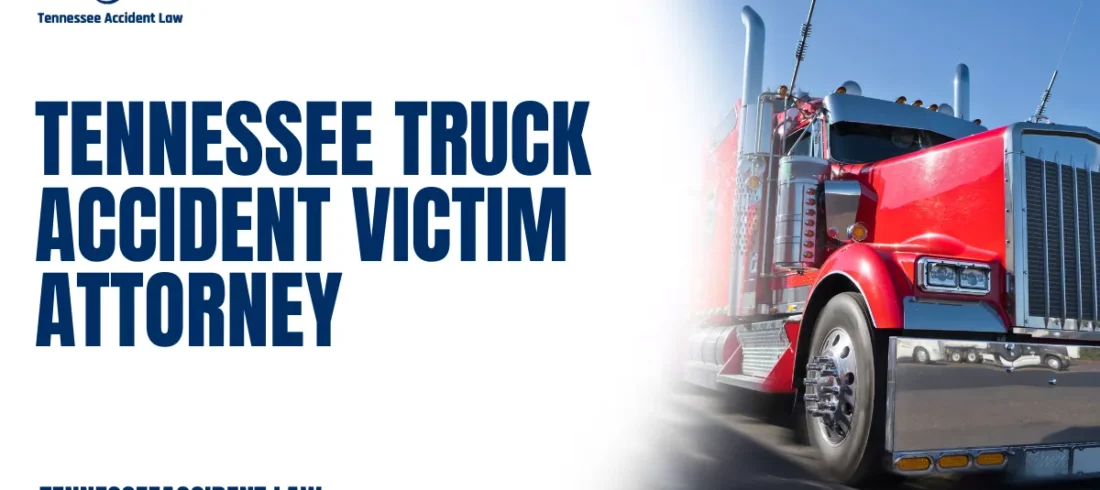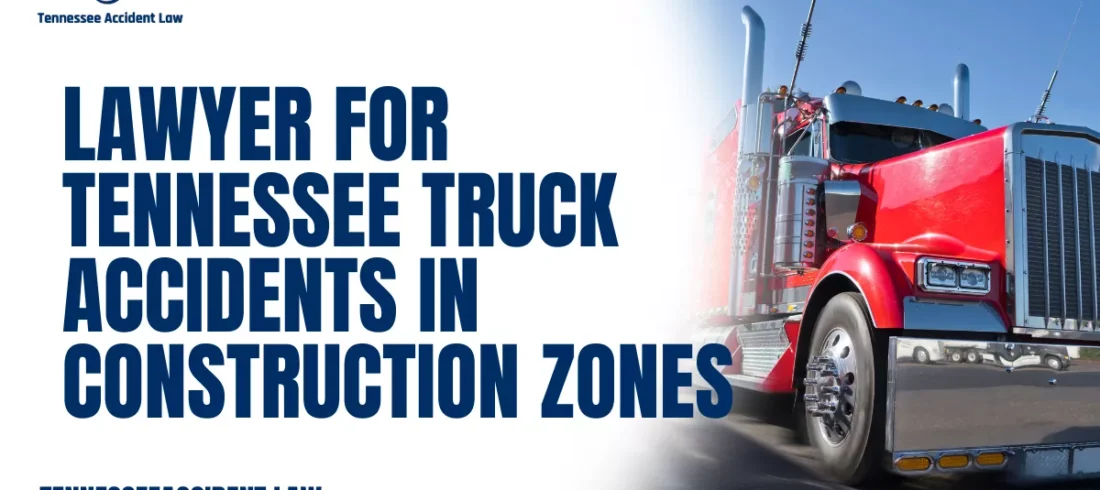
When a truck accident happens, the first question often asked is: Who is at fault? In many cases, the answer isn’t immediately clear. Eyewitness accounts may conflict, the at-fault driver may deny responsibility, and physical evidence might be limited or tampered with. That’s where dashcam footage can become a game-changer in your truck accident case.
At Tennessee Accident Law, we leverage every available tool to secure justice for our clients—and dashcam video is among the most powerful. Whether it’s from the truck, another vehicle, or even traffic surveillance, dashcam evidence can provide undeniable proof that helps determine liability, support your claim, and increase your compensation.
We explain how dashcam footage works in truck accident cases in Tennessee, what types of footage exist, how to obtain it, and how it can make or break your legal case.
Call us now at 615-212-9866 to speak with an experienced attorney about your truck accident case.
Why Dashcam Footage Is So Important in Truck Accidents
Visual Proof of the Crash
Unlike statements or opinions, dashcam footage shows exactly what happened in real-time—speed, movement, traffic signals, lane position, and road conditions. It can eliminate guesswork and establish fault with crystal clarity.
Refutes False Testimonies
Truck drivers, passengers, and even witnesses may provide biased or inaccurate accounts of a crash. Dashcams capture the event as it happened, helping refute lies, exaggerations, or memory errors.
Captures Pre- and Post-Crash Behavior
Dashcam footage can show dangerous driving behavior before the collision, such as speeding, swerving, tailgating, or distracted driving. It may also capture the truck driver’s actions after the crash—important for hit-and-run scenarios or when drivers attempt to cover up their fault.

Types of Dashcam Footage in Truck Accident Cases
There are several types of dashcams that may be involved in your truck accidet case, including:
Trucking Company Dashcams
Many commercial trucking companies install forward-facing and driver-facing dashcams in their vehicles. These record not only the road ahead but also the driver’s behavior in the cabin (e.g., texting, nodding off).
Personal Vehicle Dashcams
If you or another vehicle involved in the crash had a dashcam, the footage could be essential. This is especially helpful if the truck’s dashcam was turned off or lost.
Bystander or Witness Dashcams
Sometimes another driver at the scene captures the incident by chance. Tracking down these bystanders quickly is key to preserving this evidence.
Public and Private Surveillance Cameras
Traffic lights, business exteriors, and even doorbell cameras near intersections or highways may have recorded the incident from a different angle.
The Impact of Dashcam Footage on Jury Perception in Truck Accident Trials
Dashcam footage does more than just provide factual evidence—it can significantly influence how a jury perceives a truck accident case. Video evidence offers jurors a direct view of the incident, making the events more tangible and relatable than verbal testimony alone. Seeing the crash unfold in real-time can evoke a stronger emotional response and foster greater empathy for the injured party.
Moreover, dashcam videos help reduce ambiguity by presenting a clear, unbiased account of what happened. This clarity can make jurors more confident in assigning fault and awarding appropriate damages. Because juries often struggle to visualize complex accident scenarios based solely on descriptions, dashcam footage can be a critical tool in simplifying the facts and reinforcing your case narrative.
At Tennessee Accident Law, we understand how to use dashcam footage not just to prove liability but also to engage the jury effectively, improving your chances of a favorable verdict if your case goes to trial.
How Dashcam Footage Strengthens Your Truck Accident Case
Establishes Liability
By showing who caused the crash—whether it was the truck swerving into your lane, running a red light, or stopping abruptly—dashcam footage is often the strongest piece of evidence to prove fault.
Supports Injury Claims
Footage can help illustrate the severity of the crash—the speed of impact, extent of vehicle damage, and more—which in turn supports your injury and pain-and-suffering claims.
Rebuts Insurance Company Denials
Insurance companies frequently argue that the victim contributed to the crash or that the crash wasn’t as bad as claimed. Video proof shuts these arguments down quickly.
Helps in Settlement Negotiations
When insurers see damning dashcam evidence, they are far more likely to settle quickly and fairly rather than risk losing at trial.
Legal Considerations for Using Dashcam Footage in Tennessee
Is It Admissible in Court?
Yes. Tennessee courts typically allow dashcam footage as evidence if it is authenticated and relevant to the case. Your attorney will work to ensure the video meets evidentiary standards.
Privacy Concerns
If the footage includes audio or interior recordings, there may be additional privacy concerns. However, these rarely prevent use in a civil injury lawsuit—especially when the footage was lawfully obtained.
Spoliation of Evidence
If a trucking company destroys or hides dashcam footage, they may be subject to sanctions. At Tennessee Accident Law, we immediately send preservation letters to ensure all electronic evidence is retained.
How to Obtain Dashcam Footage After a Truck Accident
Act Quickly
Dashcam footage is often deleted within days or weeks unless preserved. It’s critical to contact a lawyer immediately so they can send a legal demand to preserve and obtain the video.
Request It From the Trucking Company
If the truck was part of a commercial fleet, we’ll request the footage directly from the company. If they refuse, we can seek a court order or subpoena.
Look for Other Vehicles or Bystanders
Sometimes you can spot other drivers with visible dashcams at the scene. Try to get their contact info, or let your attorney track them down.
Check for Business Cameras
Nearby gas stations, ATMs, or commercial buildings may have surveillance footage that caught the crash or its aftermath.
Real-World Example: Dashcam Wins the Case
One of our clients was struck by a box truck that claimed she had swerved into their lane. Fortunately, her personal dashcam captured the moment the truck drifted across the dividing line and hit her. Despite the trucking company’s denials, we used that footage to win a substantial settlement without going to trial.

Why You Need a Truck Accident Lawyer to Handle Dashcam Evidence
At Tennessee Accident Law, we know how to gather, analyze, and present dashcam footage effectively. We don’t rely on insurance companies to “do the right thing”—we compel them with cold, hard evidence.
Our attorneys will:
- Send preservation letters to all parties
- Obtain footage from multiple sources
- Work with video experts to enhance and analyze footage
- Authenticate and submit footage in court
- Build a compelling case around the video evidence
Don’t Let Critical Evidence Disappear
Dashcam footage could be the key to winning your case—but it won’t be around forever. The sooner we act, the better your chances of securing and preserving this vital evidence.
If you or a loved one has been injured in a Tennessee truck accident, take the first step now. Fill out our free case evaluation form, or call us at 615-212-9866 to talk to a truck accident attorney who will fight for you.
Sources
Federal Motor Carrier Safety Administration (FMCSA)
Offers regulations and safety guidelines related to commercial motor vehicle operations, including technology use like dashcams.
https://www.fmcsa.dot.gov
National Transportation Safety Board (NTSB)
Investigates major commercial vehicle crashes and emphasizes the importance of video evidence in collision investigations.
https://www.ntsb.gov
Tennessee Rules of Evidence
Outlines what is admissible in civil litigation, including electronic and video recordings.
https://www.tncourts.gov/rules/rules-evidence


